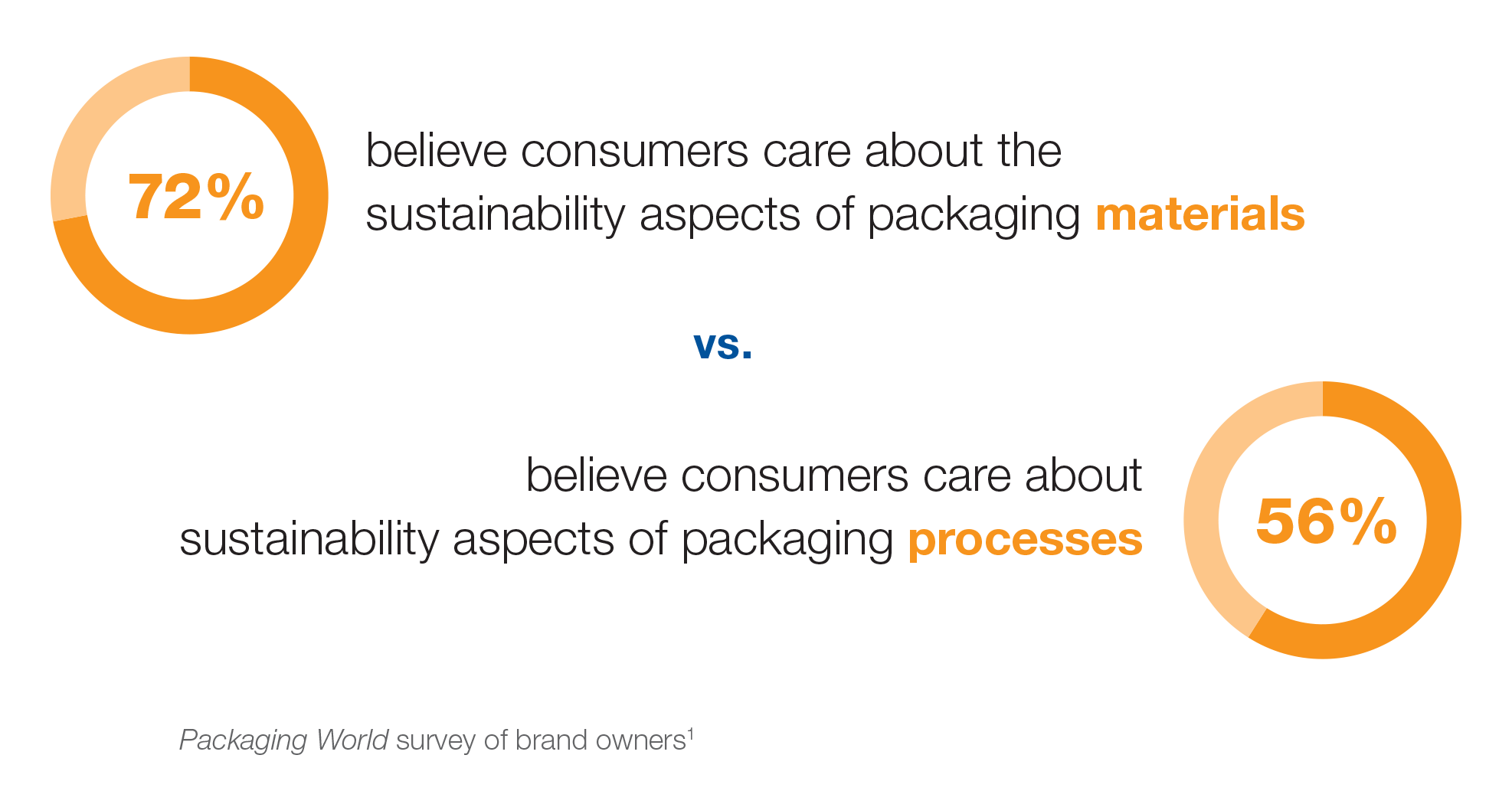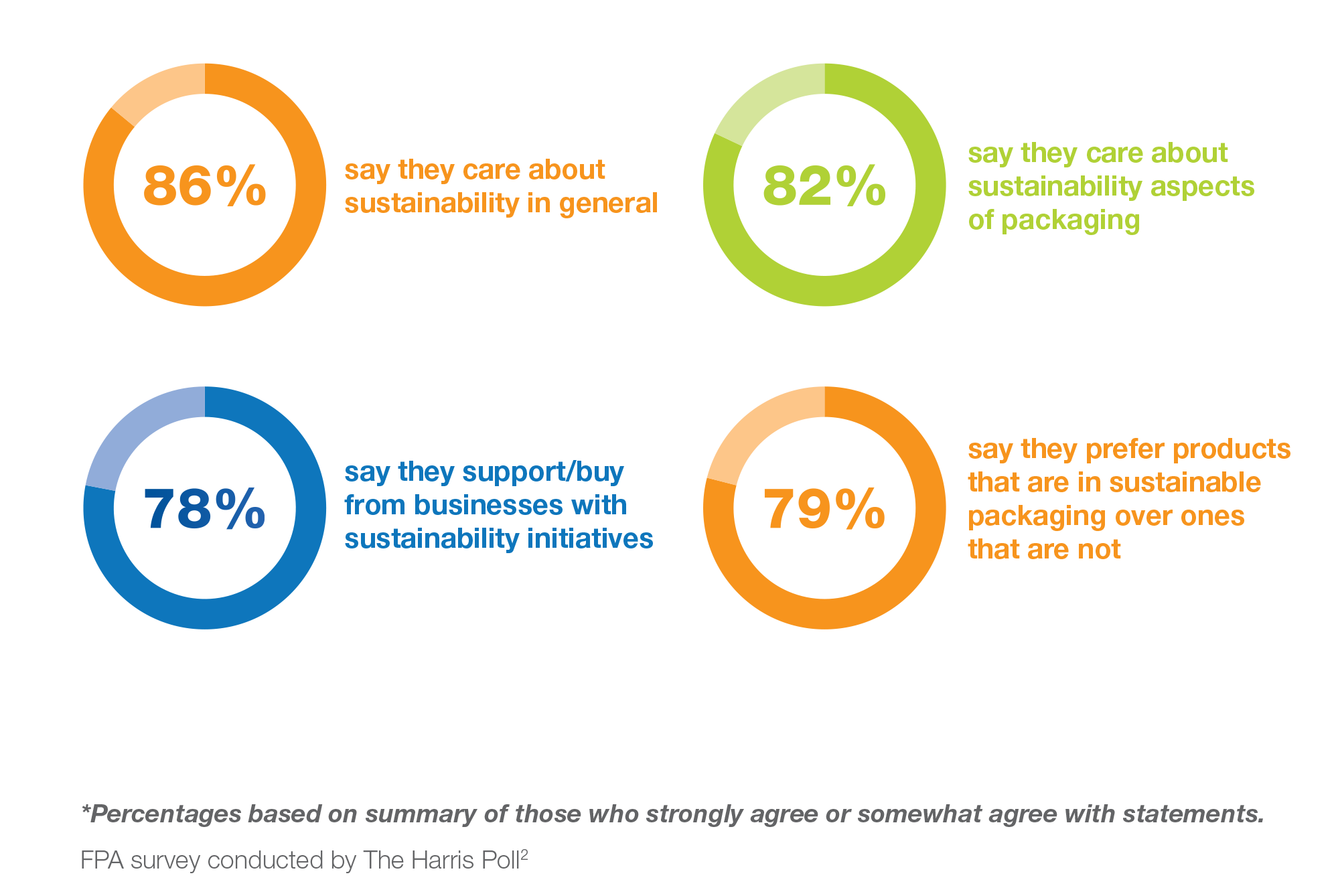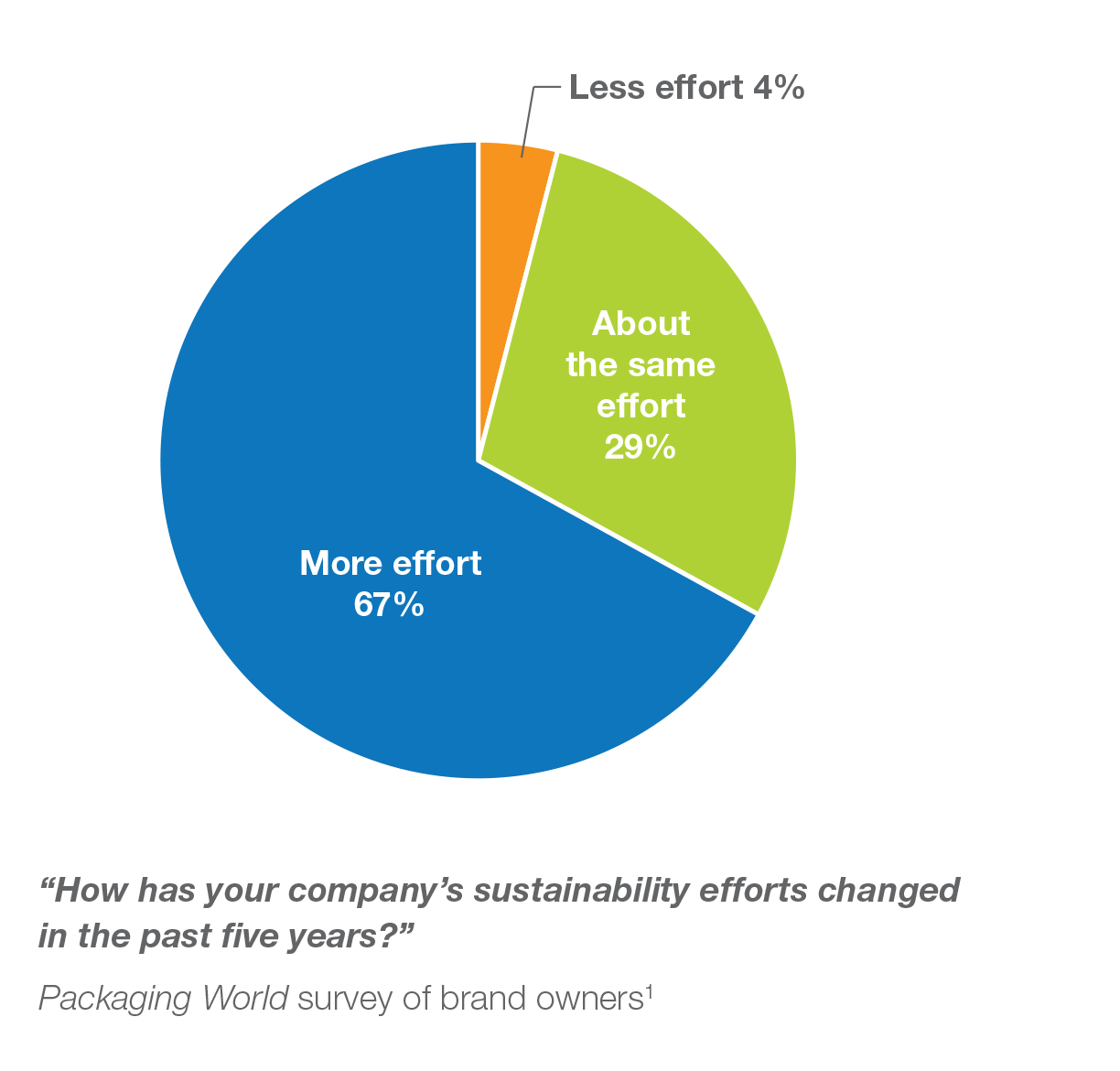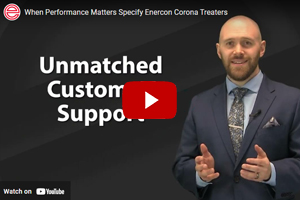Perspectives on the Meaning of Sustainability in Flexible Packaging
- Published: May 22, 2019
The Flexible Packaging Association’s (FPA) recent report, Perspectives on the Meaning of Sustainability in Flexible Packaging, was commissioned to better understand perspectives on sustainability and packaging among both consumers and brand owners. The study integrates insights from brand owners surveyed online in June 2018 by Packaging World and insights from an online survey of consumers conducted by The Harris Poll in July 2018, both surveys were conducted on behalf of FPA.
The survey results indicate that brand owners are aware that consumers care about sustainability in general and particularly sustainable materials, but many do not think consumers care about sustainable processes. The majority of brand owners believe that consumers care about the sustainability aspects of packaging materials (72 percent); however, brand owners are split about whether or not consumers care about the sustainability aspects of packaging processes (56 percent agree).

Consumers see sustainability as important, but speci
fic lifecycle attributes of sustainability are not always at top-of-mind. Sustainable manufacturing processes and transportation efficiency, for example, are less often associated with sustainability than with aspects that are more obvious to consumers, such as recycling. Eighty-six percent of consumers strongly or somewhat agree that they care about sustainability in general, and more than three-quarters (78 percent) of consumers strongly or somewhat agree that they support/buy from businesses with sustainability initiatives.
When presented with a list of packaging attributes specific to sustainability, the majority of consumers surveyed seem to care about all of the sustainability attributes listed. Ninety-one percent of consumers say that recyclable packaging is at least somewhat important, but other lesser-known sustainable packaging factors are not far behind in importance. Eighty-one percent of consumers surveyed say it is at least somewhat important that packaging is transported efficiently, and 80 percent say it is at least somewhat important that packaging uses less water in the manufacturing process.

When asked about sustainability-related language, consumers are more likely to say terms like "renewable" (59 percent), "recyclable" (56 percent) and "energy efficiency" (51 percent) best describe sustainability than words like "lightweight" (9 percent), "circular economy" (13 percent), or "transportation efficiency" (24 percent).
Consumers are also more likely to believe glass or corrugated packaging is more sustainable than flexible packaging, perhaps due to recycling benefits that are more obvious to consumers. In fact, when asked to identify which types of packaging they believe to be sustainable, consumers were most likely to say glass (57 percent) and corrugated (51 percent). Meanwhile, 37 percent of consumers surveyed think flexible packaging is sustainable.
From a sustainability perspective, Millennials present the greatest opportunity for flexible packaging companies. Though not all consumers surveyed seek out sustainable packaging benefits or are willing to pay more for them, Millennials are more likely than other generations to do either or both. They are also more likely to view certain “behind-the-scenes” attributes such as transportation efficiency and energy efficiency as important.
Millennials, ages 18-34, are more likely than other generations to say they always or often actively seek out products in sustainable packaging, promote the benefits of sustainable packaging to others, and check packaging labels for recycling or sustainability information. They are also more likely to always/often pay more for products in sustainable packaging than their older counterparts.

Given a list of sustainable packaging benefits, the majority of consumers surveyed say all of the benefits are at least somewhat important, but Millennials, ages 18-34, are more likely than other generations to say it is “absolutely essential” or “extremely important” that product packaging has a sustainable lifecycle (33 percent), is manufactured with less energy (33 percent), and has been transported efficiently (32 percent).
Younger generations are more likely to view flexible packaging as more sustainable than other types of packaging, so they present a real opportunity for flexible packaging manufacturers given their future buying power. Members of younger generations (42 percent of consumers ages 18-34 and 46 percent of consumers ages 35-44) are more likely than members of older generations (37 percent ages 45-54, 31 percent ages 55-64 and 27 percent ages 65 and over) to think flexible packaging is sustainable.
Brand owners surveyed by Packaging World say that sustainability is a priority for their companies, and packaging plays a key role in sustainability efforts. When it comes to their company’s overall business goals, 43 percent of brand owners surveyed say management makes sustainability a high priority. Another 39 percent say it is a medium priority and only 4 percent say their company does not focus on sustainability at all.
The emphasis on sustainability has grown over time. Two-thirds (67 percent) of respondents say their company has put more effort into sustainability in the past five years. For those companies that have put more effort into sustainability, the top reasons include being a better corporate citizen (31 percent), meeting consumer demands (28 percent) and reducing costs (23 percent). Other reasons include reputational benefits (11 percent) and conforming to legal regulatory requirements (4 percent).
To help communicate the study's findings, FPA developed the Sustainability Outreach and Consumer Conversations eBook to summarize and highlight key take-aways from the study. The eBook is publicly available and is available on the FPA website, www.flexpack.org.
For More Information
For more information on the FPA and the sustainability benefits of flexible packaging, contact us at fpa@flexpack.org or 410-694-0800, or visit our website, www.flexpack.org.








